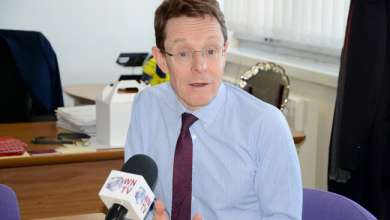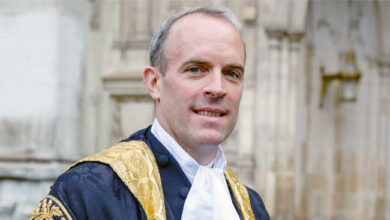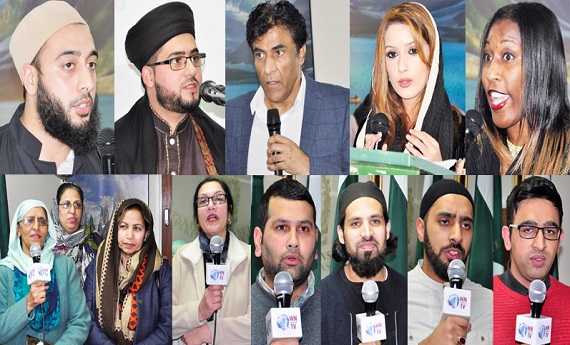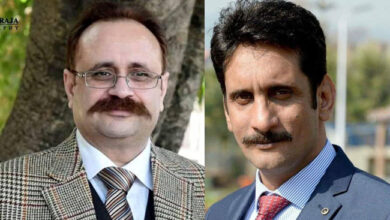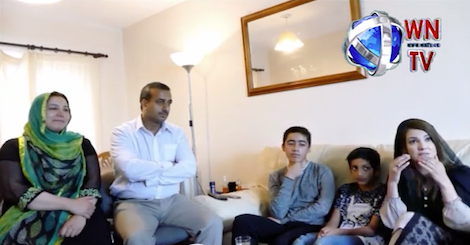UK
Pulwama and Chattisingpura: Hindutva’s Double Standards

Sikh Nationalists Endorse Kashmiri Self-Determination and Urge UN Intervention
The hysteria of the Indian establishment and its media lackeys over the Pulwama attack on Indian soldiers over recent days has not impressed the Sikhs who have yet to see any such outcry, much less any justice, over the massacre of 38 Sikhs by Indian army personnel in 2000 when US President was visiting India. According to Amrik Singh Sahota, OBE (President of the Council of Khalistan), the stark contrast betrays the true Hindutva mindset of an establishment that has not only committed unpardonable crimes against the Sikhs but unashamedly speaks of its willingness to bring mass destruction in its bid for regional hegemony.
The Sikhs, for their part he said, stand united with their Kashmiri brethren in their quest for self-determination in their homeland. A quest that is supported by international law as set out in Article 1 of the 1966 Covenant on Civil and Political Rights, several UN Security Council resolutions as well as the June 2018 report of the UN High Commissioner on Human Rights. No amount of war mongering will alter the legitimacy of the Kashmiri struggle, just as no amount of oppression in Indian-controlled Punjab will prevent the Sikhs from securing their own freedom in the form of an independent sovereign state based on the very same international legal standards.
Observers of the volatile region will recall how, on the eve of President Clinton’s visit to India in March 2000, Indian forces lined up all the male Sikhs of Chattisinghpura village in Kashmir and shot 38 dead. The objective was to blame Kashmiri insurgents and so to defame their cause. In order to ‘prove’ the claim, five Kashmiri youths were killed in a so-called “encounter” set up by Indian forces. Those youths had nothing to do with the massacre, as subsequent official enquiries found. No one has been punished for that gruesome mass killing of Sikhs which President Clinton himself confirmed was the handiwork of the Hindutva state forces when he wrote:
“During my visit to India in 2000, some Hindu militants decided to vent their outrage by murdering thirty-eight Sikhs in cold blood”.
[statement contained in his forward to former U.S. Secretary of State Madeline Albright’s book titled “The Mighty and the Almighty: Reflections on America, God, and World Affairs.”]
During the recent Indian Republic Day and Kashmir Solidarity Day protests in the UK, Sikhs demonstrated alongside Kashmiris to make it clear that the two peoples will jointly confront India on the issue of self-determination and human rights. This collaboration will, according to Amrik Singh, help bring freedom to the region and establish enduring peace to the place President Clinton, just before that visit, described as the “most dangerous place in the world”.
Indian sabre rattling over the Pulwama killings brings the global community straight back to those insightful comments. The Sikh nation is not a party to the Indo-Pak conflict but will not stand by and allow this belligerence to wreak havoc over its homeland and the wider region. The world community must realise that Indian colonialism is not just illegal under international law, but is the author of hundreds of thousands of deaths in Indian controlled parts of Kashmir and Punjab. The UN itself should intervene to stop the impending further disaster and bring about conflict resolution so that we never end up in this position again.
On a separate note, Amrik Singh said that the Indian establishment has been looking for any excuse to sabotage the excellent Kartarpur corridor initiative taken by Pakistan last November and warned against the current tensions being used in that context. He said the Sikh nation would not forgive India for any such step, just as it has never forgiven it for the heinous Chattisinghpura massacre of non-combatants.
Disclaimer: The views and opinions expressed or referred to in this article do not necessarily represent those of WNTV or any of its staff or editors. WNTV’s aim is to provide, so far as possible, a platform for external contributors with limited editorial intervention. Accordingly, readers are asked to note that the publication of articles on this site is not in itself to be taken as WNTV’s endorsement of any reported third party position, policy or statement.

